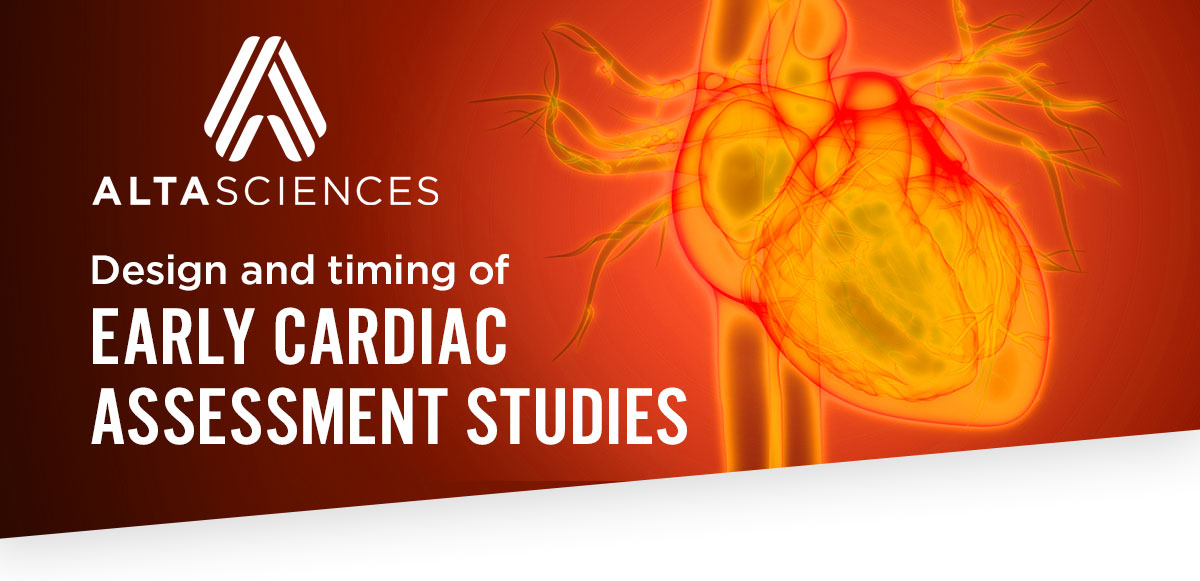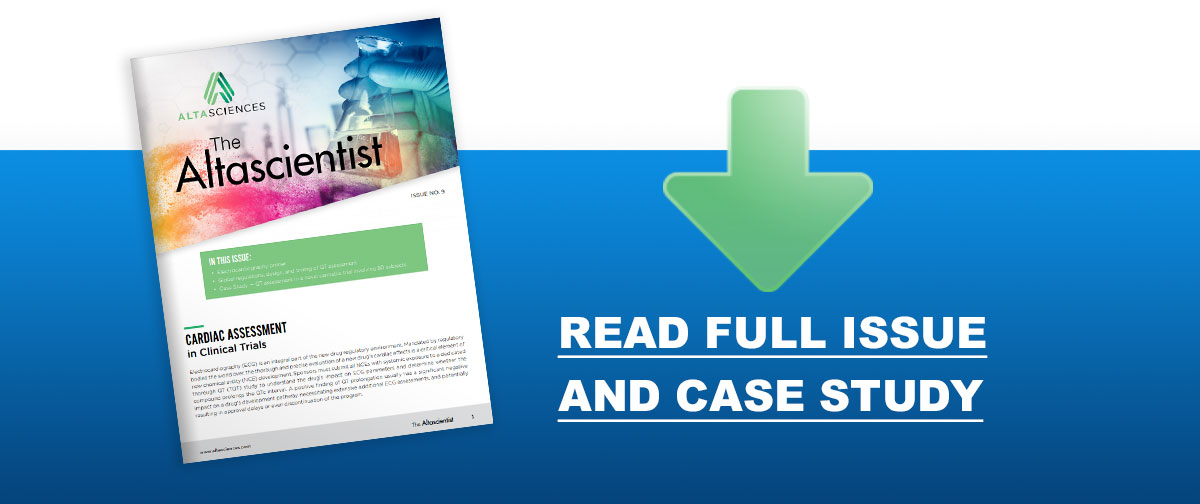Early cardiac assessment studies to determine cardiac safety profile

|
||
|
February is Heart Month, a time to raise awareness on cardiovascular health. Cardiac safety issues are one of the main reasons promising drugs are halted in development. With the collaboration of a number of leading core ECG vendors and our in-house clinical units specially designed for assessing cardiac safety, Altasciences has designed and conducted over 30 early cardiac safety and QT prolongation studies. |
||
|
Whether you choose to conduct your cardiac assessment trials earlier (such as in first-in-human studies) or a little later (after completing Phase II), you can benefit from the following advantages:
|
||
|
In this issue of The Altascientist, we discuss the ICH regulations, and provide a thorough review of the design and timing of QT studies for your drug development program. Included is a recent case study on the QT assessment in a novel cannabis trial involving 80 subjects. |
||

|